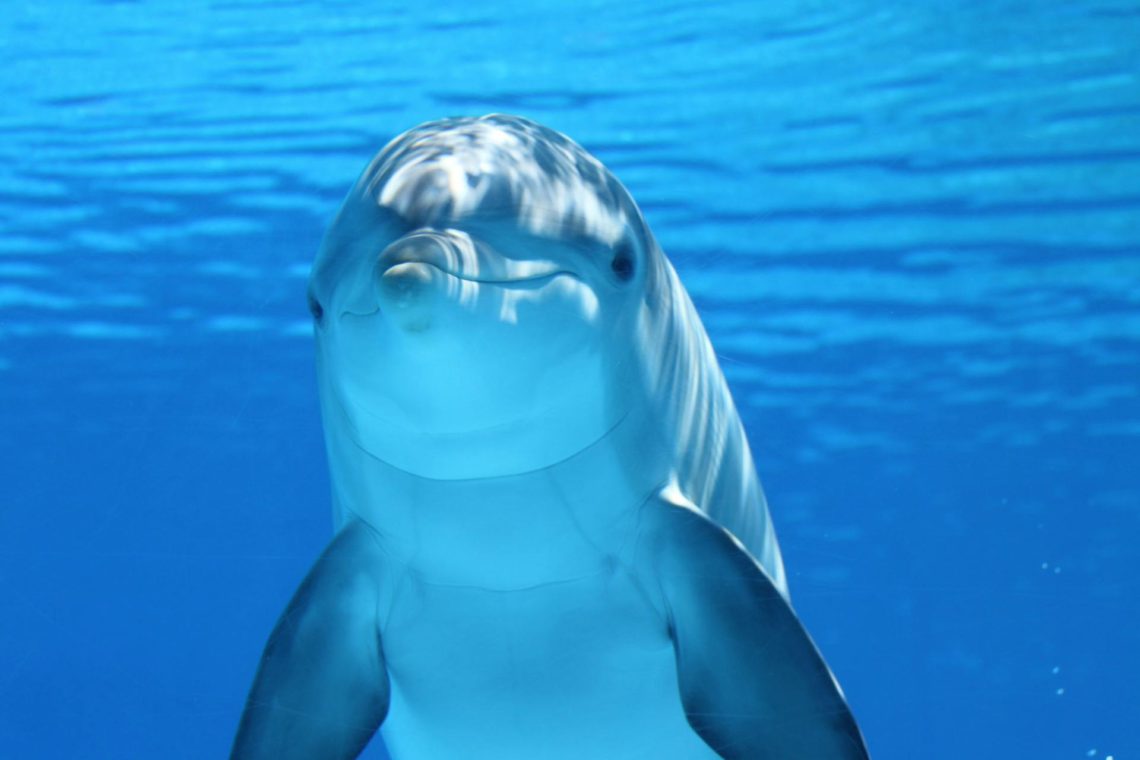IF you are a Douglas Adams fan, the fact that dolphins are considered ‘non-human persons’ should come as no surprise.
According to The Hitchhikers Guide to the Galaxy, “dolphins are the second most intelligent species on the planet Earth. Man had always assumed that he was more intelligent than dolphins because he had achieved so much – the wheel, New York, wars, and so on – whilst all the dolphins had ever done was muck about in the water having a good time. But conversely, the dolphins had always believed that they were far more intelligent than man – for precisely the same reasons.”
In all seriousness though, we’re happy to report that India is a forerunner for dolphin rights. They announced a ban on dolphin waterparks in 2013, as “Cetaceans are highly intelligent and sensitive. Various scientists who have researched dolphin behaviour have suggested that the[ir] unusually high intelligence; as compared to other animals means that dolphin[s] should be seen as ‘non-human persons’ and, as such, have their own specific rights and [it’s] morally unacceptable to keep them captive for entertainment purpose[s]”.
Dolphins Given Non-Human Rights
An international Declaration of Rights for Cetaceans was formulated in 2010 declaring dolphins and whales as “persons” to be afforded “non-human rights”, including freedom of movement and residence and not to be killed, captured, bred, or enslaved. A subsequent global movement for cetacean rights was launched in 2012.
Personhood – Philosophical or Biological?
Declaring cetaceans worthy of personhood doesn’t mean they are human, as personal identity is philosophical rather than biological. Debated by everyone from Greek philosopher Socrates to modern day psychologists and theologians, identity remains a controversial idea.
Political theorist John Locke postulated that a person is a “thinking, intelligent being, that has reason and reflection, and can consider itself as itself.” In other words, self-awareness makes a person. However, this theory rules out foetuses, infants, and non-responsive humans (i.e. those in vegetative states / braindead).
According to a cetacean rights expert, “the more technical answer is that a ‘person’ is any being, no matter what their species, who has the traits that imply a sophisticated level of intellectual and emotional sophistication.”
Dolphins More Like Us than We Imagined?
Countless studies prove dolphins’ intelligence, demonstrated by their:
- Sophisticated communication: Like humans, they use physical and visual contact to communicate (e.g. a gentle nuzzle versus an aggressive bite or a vigorous head bobbing). They can also understand linguistically sophisticated concepts such as syntax and differentiate themselves from others by emitting a characteristic whistle as a name.
- Sense of community: Like us, they form cultural communities amongst themselves. They also have the longest social memory of all non-humans – they can remember individuals 20 years after their last interaction as a result of the close social bonds they establish. Furthermore, they transfer knowledge across generations, a trait formerly believed exclusive to humans.
- Higher order brain function / self-awareness: “Years of research has shown dolphins and whales have large, complex brains and a human-like level of self-awareness. According to Dr Lori Marino, ‘We went from seeing the dolphin/whale brain as being a giant amorphous blob that doesn’t carry a lot of intelligence and complexity to … an enormous brain with an enormous amount of complexity … that rivals our own. Dolphins also have a sense of self which could be tested by the way they recognise themselves in mirrors. When you look in the mirror and know that’s you, you have a sense of ‘you’. They have a similar sense [of recognition].”
- Abstract thought: They not only can problem solve in response to stimuli, but they can also make decisions, guess, and plan in advance, as demonstrated when “a number of captive dolphins were rewarded with fish in return for tidying up their tank. One of them ripped up a large paper bag, hid away the pieces, and presented them one at a time to get multiple rewards ”.
So like India, hopefully other countries will follow suit! To explore and support animal welfare organizations:
–
Give’s mission is to “make giving bigger and better.” Give is the most trusted donation platform in India for fundraisers and crowdfunding campaigns. Through our technology solutions, we enable individuals and organisations to fundraise and donate to a cause, charity or NGO with trust and convenience. Give’s community of 2.7M+ individual donors and 300+ organisations supports 3,000+ verified nonprofits with 80G deduction and serves 15M+ people across India. Find a fundraiser today!

Give exists to alleviate poverty by enabling the world to give. Established in 2000, Give, together with its partners, is the largest and most trusted giving platform in India. Give enables individuals and organizations to raise and donate funds conveniently to any cause they care about, with offerings including crowdfunding, corporate giving, cause marketing, and philanthropy consulting. Give’s community of 2.6M+ donors supports 3,000+ verified nonprofits, serving 15M+ people across the country.
Discover more from
Subscribe to get the latest posts sent to your email.

